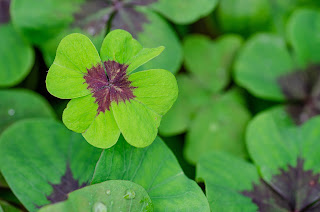Guest Post with Eva Glyn
Today I'm delighted to welcome an author friend whose writing I admire greatly,
Eva Glyn, who also writes as Jane Cable. Her novels are full of emotion, inspired by the wonderful places she visits and the secret stories she finds there. These are all the ingredients in a novel I love! Those of you who follow my blog will know that this summer I have been undertaking research for my fourth novel. I'm interested in finding out how other authors tackle this and who better than Eva to start off the series. Eva, welcome. It's over to you!
Croatia and its rich twentieth century history is at the
heart of my writing. It started with a conversation about the war in the 1990s
with our guide during my first visit to the country in 2019, which resulted in
The Olive Grove, set on the island of Korcula; then I delved into the rich (and
shocking) Second World War history of Vis for An Island of Secrets.
Next
summer I will be taking readers to Dubrovnik.Once again it was World War Two that pulled me in, most
particularly the massacre of Nazi collaborators by the partisans when they
retook the city in 1944. It happened within days of them arriving without even
much pretence of a trial, so what if they got it wrong? What might have
happened to the families of those men?
I never need much of an excuse to travel to Croatia, but I
now tend to leave my research visits until the book is pretty much drafted.
This approach means I know the facts I need to check and the places I need to
visit to make sure I bring them as alive as possible for my readers, but it
does have its drawbacks.
A case in point was the island of Lopud, about 15 kilometres
north of the city. Without giving too much away, the fate of Dubrovnik’s Jews
became important to my story and it was there many of them were interned by the
Italians. But where?
 |
| Lopud 1483 Graffiti |
The only place that seemed big enough was an abandoned
monastery next to the harbour, now the exclusive holiday rental and event
space, Lopud 1483. As I researched I found a great big clue; on one of the
bedroom walls is some World War Two graffiti reading ‘il duce’. I was fairly
convinced I had found the right place and wrote a couple of key scenes in my
book accordingly.We were lucky enough to be able to visit Lopud 1483 between
rentals and were shown around by their security manager, a local man with a
passion for history. In the course of our conversation it came out that
although the Italian soldiers had used the monastery as their base, the Jews
had been housed in an old hotel. But which one?
There were several likely targets but I settled on one quite
close to the makeshift barracks which backed onto fields, as I knew the Jews
had been able to grow their own food. So as I waited for the ferry back I
reimagined my scenes and left the island perfectly content.
Except, yet again, I was wrong. The other great thing about
researching in the country you are writing is that search engines work
differently, and open up new sources. After we left Lopud I rather belatedly
discovered it was a different hotel completely, right at the other end of the
waterfront.
 |
| Jewish armband |
Luckily we had walked around the whole village and because
it was so iconic we couldn’t help but notice it. Built in the 1930s entirely of
concrete it was once a renowned icon of brutalist architecture. Kind of
suitable for the brutal use to which it was later put.
So after the trip I was able to rewrite the scenes for the
third time and submit my manuscript to my editor. At the time of writing the
book has no title, no cover, but oddly a link to pre-order it and a publication
date of April 1st 2023. Highly appropriate given history could have
made a fool out of me if I hadn’t visited my locations.
Thank you, Eva. That's so interesting to hear that you have most of your novels drafted before visiting the locations. I'm sure that this approach must save a lot of time by narrowing down what you need to check and where you need to go. I'm pleased you found the right hotel and were able to rewrite the scenes before submitting. I can't wait to travel to Dubrovnik with you in your new novel next year and revisit that beautiful city.
Buy link to Eva's books on Amazon: https://www.amazon.co.uk/Eva-Glyn/e/B08WH28BPV/
Instagram: @evaglynauthor
Bookbub: https://www.bookbub.com/profile/eva-glyn
Thank you for reading. I hope you enjoyed Eva's post as much as I did. Do you try to visit the locations of your novels? What are the benefits? Have you encountered any drawbacks and had to rewrite any scenes your research trip?
You may also follow me on Twitter @JanBaynham and on my Jan Baynham Writer Facebook page.
For more about me and my writing, please visit my AMAZON page.
















